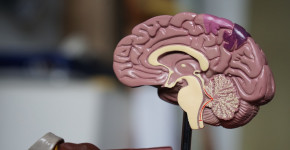 Launch apps instantly. Claim $200 credits on DigitalOcean
Launch apps instantly. Claim $200 credits on DigitalOcean
How is eWaste harmful to human health?
Written by Ecoverva Recycling Company » Updated on: March 20th, 2024

Have you ever wondered what happens to your old electronics when you're done with them? Electronics, like phones and computers, don't last forever. When they become old or stop working, they turn into what's called electronic waste, or e-waste. But did you know that e-waste can be harmful to you and the planet? Let's find out why and what we can do about it.
1. What is e-Waste?
E-waste is any old electronic device that you no longer use. This includes things like phones, computers, and appliances. But here's the catch: these devices contain toxic stuff that can hurt us if not handled properly. Inside your gadgets, there are chemicals like lead, mercury, and cadmium, which can be harmful to our health and the environment.
2. Air Pollution from Burning E-Waste
Some people burn old electronics to get rid of them, but this releases harmful chemicals into the air. Breathing in these chemicals can make us sick and even cause diseases like asthma and cancer. When e-waste is burned, toxic substances like dioxins are released, which can travel through the air for miles, affecting communities far beyond where the waste was burned.
3. Water Contamination from Dumping E-Waste
When e-waste is thrown away in landfills, toxic stuff can leak into the ground and water. This can pollute our drinking water and harm animals and plants. Heavy metals like lead and mercury can seep into the soil, making it hard for plants to grow and contaminating crops. When it rains, these chemicals can also leach into nearby rivers and lakes, affecting aquatic life and ecosystems.
4. How E-Waste Hurts Soil
Toxic substances from e-waste can seep into the soil, making it hard for plants to grow. When plants absorb these toxins, they can make us sick if we eat them. Heavy metals and flame retardants from e-waste can stay in the soil for a long time, poisoning the land and affecting the health of animals and humans who come into contact with it.
5. The Dangers for People Who Handle E-Waste
People who work with e-waste without protection can breathe in harmful fumes and dust. This can damage their health and lead to serious illnesses like lung disease and cancer. Many e-waste recycling operations in developing countries operate without proper safety measures, putting workers at risk of exposure to dangerous chemicals.
6. The Long-Term Effects on Human Health
E-waste contains dangerous chemicals like mercury and lead. When these chemicals get into our bodies, they can cause problems with our brains, hearts, and other organs. Prolonged exposure to e-waste toxins can lead to chronic health issues such as neurological disorders, reproductive problems, and developmental delays, especially in children.
7. Why Proper E-Waste Disposal Matters
It's important to dispose of e-waste correctly to protect ourselves and the environment. Recycling old electronics can help prevent pollution and keep toxic chemicals out of our air, water, and soil. Proper e-waste disposal also conserves valuable resources by recovering materials that can be reused in new products, reducing the need for mining and manufacturing.
8. What You Can Do to Help
You can make a difference by recycling your old electronics instead of throwing them away. Many places offer e-waste recycling programs where you can drop off your old gadgets for safe disposal. You can also spread the word to friends and family about the importance of e-waste recycling. By choosing eco-friendly electronics and supporting companies that prioritize recycling and sustainability, we can all contribute to a healthier planet for future generations.
Conclusion:
E-waste might seem harmless, but it can have serious consequences for our health and the environment. By recycling our old electronics and raising awareness about the dangers of e-waste, we can all do our part to make the world a safer place for everyone.
Copyright © 2024 IndiBlogHub.com Hosted on Digital Ocean









Post a Comment
To leave a comment, please Login or Register